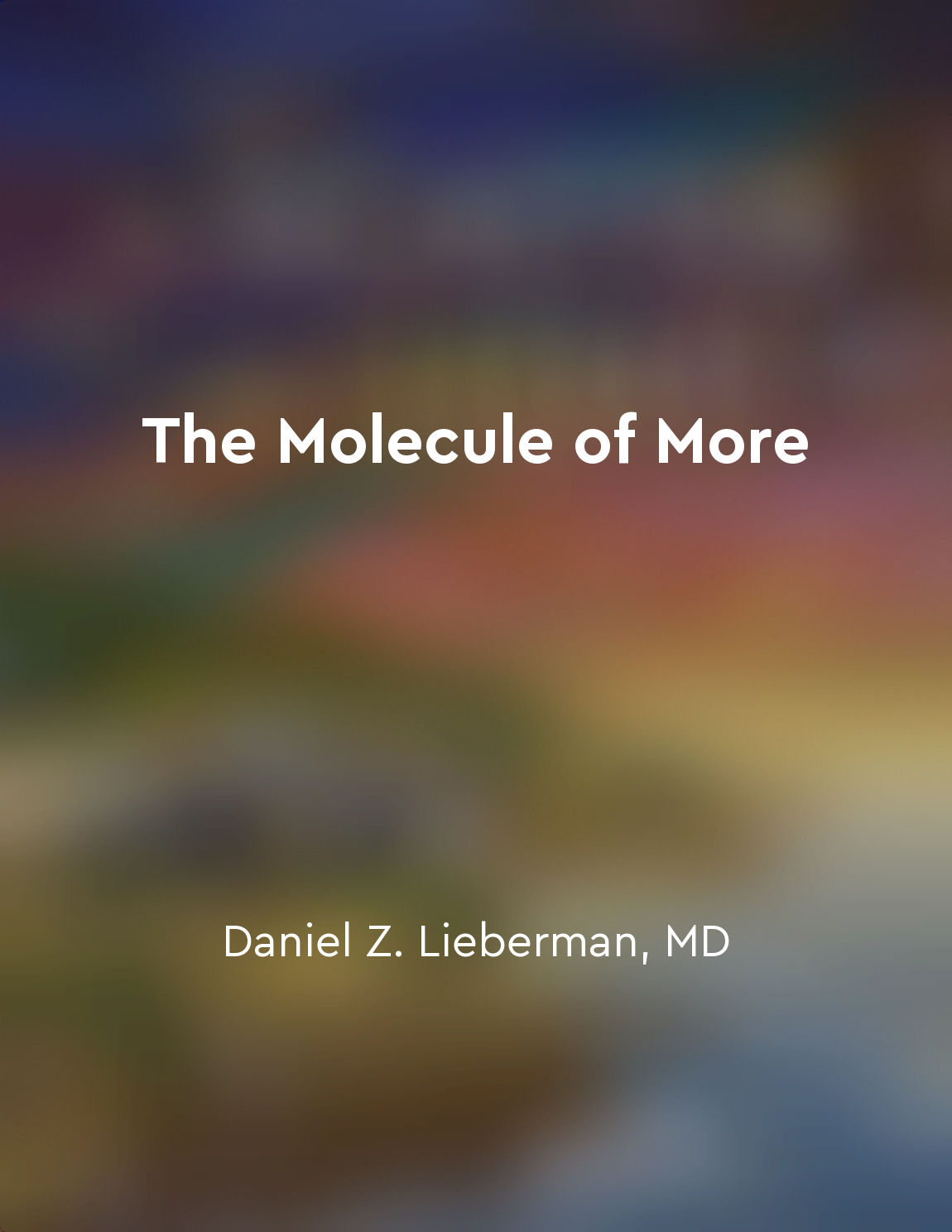Humans are wired to seek more dopamine from "summary" of The Molecule of More by Daniel Z. Lieberman, MD,Michael E. Long
Our brains are hardwired to seek out more of the feel-good chemical dopamine. This is because dopamine drives us to pursue rewards and motivates us to take action to achieve those rewards. When we accomplish a goal or experience pleasure, our brain releases dopamine, reinforcing our behavior and encouraging us to seek out similar experiences in the future. Dopamine plays a crucial role in our drive for more because it is the neurotransmitter that fuels our desire for novelty, challenge, and change. It pushes us to explore new territories, take risks, and seek out new experiences. This is why we are often drawn to activities that provide a dopamine rush, such as trying new foods, traveling to new places, or engaging in exciting adventures. The pursuit of more dopamine can lead to both positive and negative outcomes. On the positive side, it can drive us to achieve great things, take risks, and push ourselves beyond our limits. However, it can also lead to addictive behaviors, as we become hooked on the thrill of seeking out more dopamine and may engage in harmful or self-destructive activities to satisfy our cravings. Our constant quest for more dopamine can also create a cycle of dissatisfaction, as the brain quickly adapts to new levels of dopamine and craves even higher doses to experience the same level of pleasure. This can lead to a never-ending cycle of seeking out more rewards and never feeling truly satisfied, as our brains are always pushing us to chase after the next dopamine hit. In order to break free from this cycle of seeking more dopamine, we must learn to balance our pursuit of rewards with a sense of contentment and gratitude for what we already have. By practicing mindfulness, gratitude, and self-awareness, we can learn to appreciate the present moment and find fulfillment in the simple things in life, rather than constantly chasing after the next dopamine rush.Similar Posts

It is possible to replace negative thoughts with positive ones
The idea that negative thoughts can be replaced with positive ones is a central concept in cognitive therapy. This concept is b...

Emotional intelligence is a key component of effective leadership
Effective leadership hinges on a leader's ability to understand and manage their emotions, as well as the emotions of others. T...
Psychological wellbeing contributes to happiness
In understanding what contributes to happiness, it is important to consider the role of psychological wellbeing. Psychological ...
True happiness comes from within
The idea that true happiness comes from within is a common theme in many self-help books and personal development philosophies....
Social connections activate oxytocin
When you connect with others, your brain releases oxytocin. This neurochemical is often called the "love hormone" because it pr...
Create a supportive environment for your detox journey
When embarking on a detox journey, it is crucial to establish a supportive environment that nurtures your progress and growth. ...
Build selfcontrol through consistent practice
To build self-control through consistent practice means to engage in activities that challenge your ability to resist temptatio...

We are all seeking a balance between novelty and stability
The eternal dance between novelty and stability is a fundamental aspect of human nature. We are constantly seeking new experien...

Material possessions do not provide lasting contentment
In the pursuit of happiness, many people mistakenly believe that material possessions will bring them enduring contentment. How...
